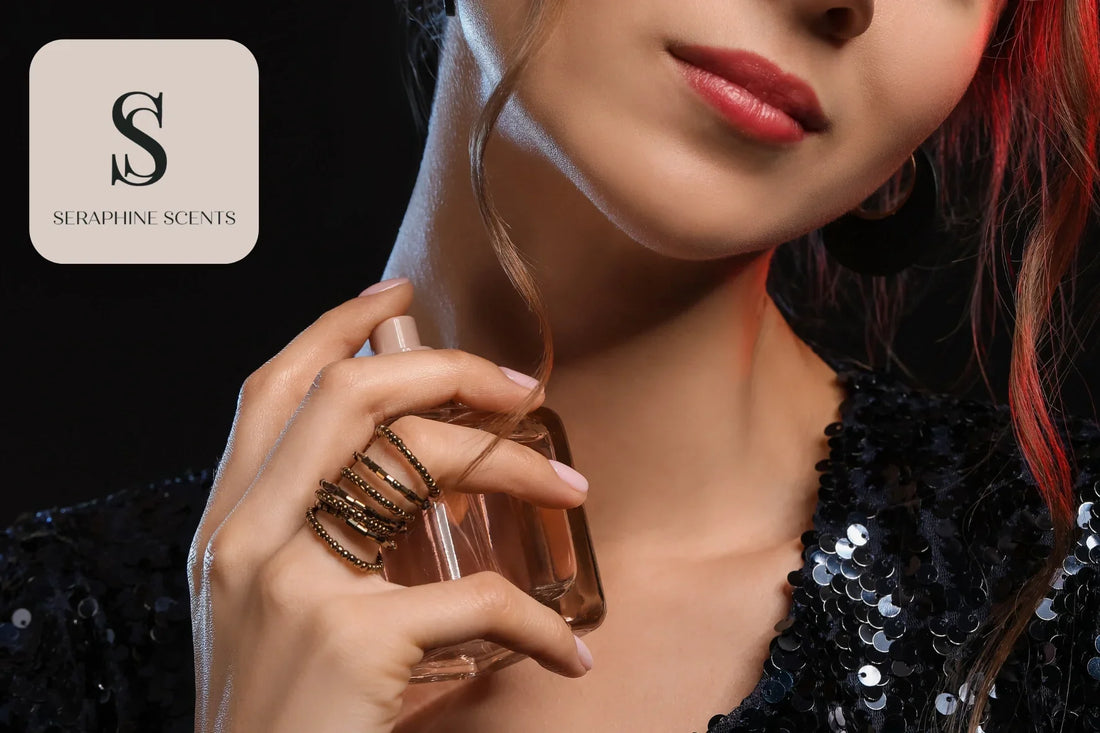
Fragrance and Perfume Explained: The Science Behind Notes, Sillage & Longevity
Why does your perfume sometimes fade in an hour, while your friend’s lasts all day? The difference lies in the fascinating science of fragrance and perfume. This guide explains how notes develop, how sillage works, and why longevity changes from one scent to another. Understanding these factors will help you choose better, enjoy more from your collection, and shop with confidence.
In this article, we’ll cover the structure of perfumes, the chemistry behind scent projection, and practical tips for maximizing performance. Whether you’re a beginner or a collector, this is an evergreen reference worth sharing across fragrance communities.
What You’ll Learn
- The three-part pyramid of notes: top, heart, and base.
- What sillage means and how to recognize it.
- The scientific factors that determine longevity.
- How skin chemistry and environment alter performance.
- Smart tips for choosing perfumes that match your lifestyle.
If you’re ready to explore scents that truly work for you, browse our full perfume collection, shop best-sellers, or uncover value picks in our Lucky Finds luxury perfume deals at Seraphine Scents.
The Perfume Pyramid: Top, Heart, and Base Notes
Every fragrance unfolds in stages. This progression is called the perfume pyramid:
- Top Notes: The sparkling opening, often citrus or herbal, lasting 15–30 minutes.
- Heart Notes: The body of the perfume, typically florals, spices, or aromatics, lasting 3–6 hours.
- Base Notes: Deep, heavy scents like woods, musks, and ambers that anchor the fragrance for hours.
Understanding this structure helps you anticipate how a perfume evolves throughout the day. What you smell in the first few minutes isn’t what you’ll wear all day. At Seraphine Scents, we emphasize note breakdowns so customers can choose scents that match their needs across occasions.
Sillage: The Invisible Trail
Sillage (pronounced see-yazh) is the aura or scent trail a perfume leaves behind. It’s the difference between a fragrance that stays close to your skin and one that announces itself when you enter a room. Sillage is influenced by:
- Concentration: Higher oil content generally increases projection.
- Molecule Weight: Light citrus molecules disperse quickly; heavier resins linger in the air.
- Application: Pulse points and clothing sprays affect how scent diffuses.
- Climate: Warm, humid environments amplify sillage, while cold air suppresses it.
Recognizing sillage helps you choose perfumes for different settings. A soft floral may suit the office, while a bold amber shines for an evening event.
Longevity: Why Some Perfumes Last Longer
Perfume longevity depends on science as much as artistry. Here are the key factors:
- Concentration: Eau de Parfum and Parfum last longer than Eau de Toilette or Cologne.
- Note Composition: Heavy molecules like oud or patchouli cling to skin longer than fresh citrus notes.
- Skin Type: Oily skin holds perfume better than dry skin, which often causes scents to fade quickly.
- Environment: Heat speeds up evaporation, shortening longevity but increasing projection.
Want perfumes optimized for tropical climates? Explore our best-selling fragrances, handpicked for Singapore weather.
The Role of Skin Chemistry
Your skin chemistry makes every fragrance unique to you. Factors include:
- pH Balance: Acidic skin can sharpen fresh notes; alkaline skin may mellow them.
- Moisture: Hydrated skin helps scents cling; dry skin reduces longevity.
- Natural Scent: Everyone has a subtle baseline aroma that interacts with perfumes differently.
This is why a perfume that smells floral on one person may feel woody on another. When shopping, always test on your skin before deciding.
Climate and Environment
External conditions also shape performance:
- Heat: Expands scent molecules, boosting projection but reducing wear time.
- Humidity: Carries scent further but may blur light notes.
- Cold: Contracts molecules, muting projection but preserving depth.
In hot, humid climates like Singapore, it’s wise to have a mix of fresh daytime scents and deeper evening fragrances. Check out our Lucky Finds collection for versatile options.
How to Maximize Longevity
Practical ways to extend your perfume’s life include:
- Moisturize with an unscented lotion before spraying.
- Apply on pulse points: wrists, neck, inner elbows.
- Spray lightly on clothes and hair for extended presence.
- Store bottles away from heat and sunlight.
- Avoid rubbing wrists together, which disrupts molecule structure.
Choosing Perfumes Scientifically
While scent is emotional, applying scientific reasoning helps you choose smarter:
- Match concentration and notes to your climate.
- Consider your skin type and how it holds fragrance.
- Test across hours to evaluate full note development.
- Build a balanced wardrobe: light florals or citrus for day, woods and ambers for night.
Need inspiration? Browse our complete perfume range to find scents that match your chemistry and environment.
Fragrance Families and Their Science
- Citrus: Quick diffusion, uplifting, but shorter lifespan.
- Floral: Moderate longevity, evolving beautifully in the heart stage.
- Woody: Long-lasting due to heavier molecules like sandalwood and vetiver.
- Amber/Oriental: Dense and enduring, excellent for evenings and cooler weather.
Frequently Asked Questions
What is the difference between sillage and projection?
Projection is how far a scent radiates from your body, while sillage is the lingering trail you leave behind.
Why does my perfume smell different in summer versus winter?
Heat and humidity speed up evaporation, amplifying top notes but shortening wear. Cold slows diffusion, making base notes last longer.
How many sprays should I use?
Usually 2–4 sprays are enough. More isn’t always better; overspraying can overwhelm top notes and reduce balance.
Does layering perfumes change sillage and longevity?
Yes. Layering can enhance complexity and longevity, especially if you combine complementary notes. Always test combinations on skin first.
Final Thoughts: Where Science Meets Art
Perfume is not just artistry — it’s science in action. Notes, sillage, and longevity are all governed by chemistry, physics, and biology. By understanding these principles, you’ll shop more wisely, wear scents with confidence, and build a collection that performs beautifully.
Explore the science for yourself with curated picks from Seraphine Scents. Start with our best-sellers, explore all products, or unlock unique treasures in our Lucky Finds. Each bottle is 100% authentic, with fast islandwide delivery in Singapore.
Fragrance and perfume are both science and poetry — once you understand how they work, every scent tells a richer story.

